With the coming of the 13th National Disaster Prevention and Mitigation Day (May 12), the "Disaster Prevention and Mitigation: China's Experience and International Cooperation" Forum was held in Renmin University of China on May 9,2021.
The forum was jointly hosted by China Public Relations Association (CPRA), China Society of Emergency Management (CSEM) and jointly organized by School of Journalism and Communication of Renmin University of China, School of Public Administration of Renmin University of China. The co-organizers included the School of Journalism and Communication of Wuhan University, The Postgraduate Service Group of Sichuan University, the Sino-Russian University Alliance of Journalism Education and other units.
Leaders of relevant central ministries and commissions, local government spokesperson and other government leaders, international and domestic renowned experts and scholars as well as important journalists from international news media attended the forum.

The Main Forum
Professor Jin Nuo, Secretary of the Party committee of Renmin University of China, attended the forum and delivered a welcome speech. Guo Weimin, member of the CPPCC National Committee, former Deputy Director of The State Council Information Office and President of CPRA; Zheng Guoguang, Secretary-General of the National Disaster Reduction Committee and Vice President of the CSEM; Pamela J. Shoemaker, professor of the School of Public Communication at Syracuse University and member of the International Advisory Committee of the "Double First-Class" initiative, delivered keynote speeches respectively. The main forum was moderated by Professor Hu Baijing, vice president of Renmin University of China.
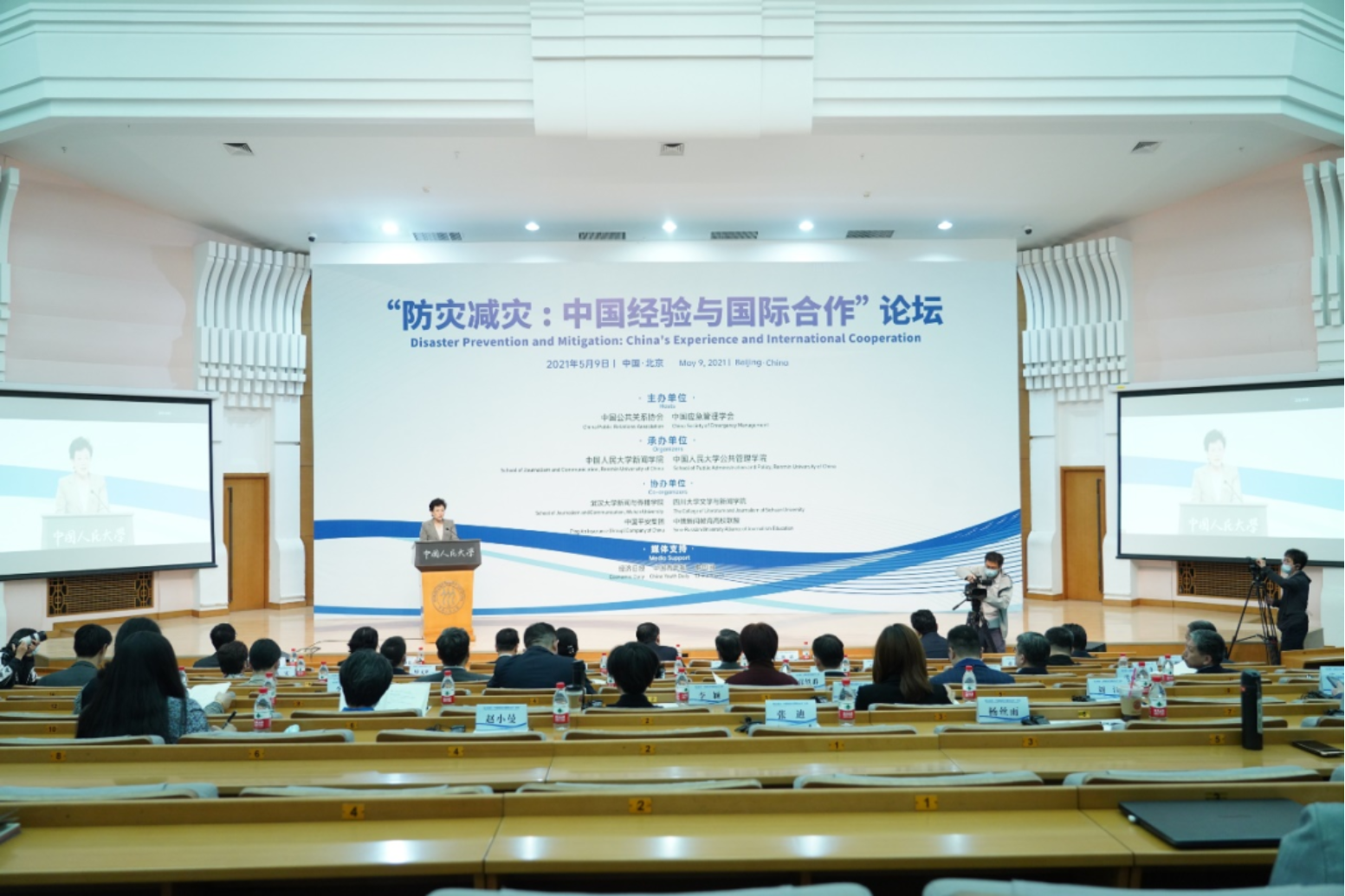
On behalf of Renmin University of China, Jin Nuo extended sincere welcome to all the guests and warm congratulations on the opening of the forum. She pointed out that with the rapid development of informatization, urbanization and globalization, natural disasters have caused more and more damage to human society and the natural environment, asking for better global disaster management.
On this basis, Jin Nuo put forward three suggestions: first, continuously enhance the cognition of natural laws, find a more scientific way for disaster prevention and mitigation. Second, enhance the awareness of the importance of disaster prevention and mitigation and improve the system of disaster prevention and mitigation. Third, strengthen the awareness of a community with a shared future for mankind and strengthen international cooperation in disaster prevention and reduction.
Finally, she hopes the forum to become a platform for both government and academia, both Chinese and foreign experts in relevant field to share information, resources, and promote cooperation. The forum could make contributions to disaster reduction and start a new era of the international disaster prevention and mitigation work.
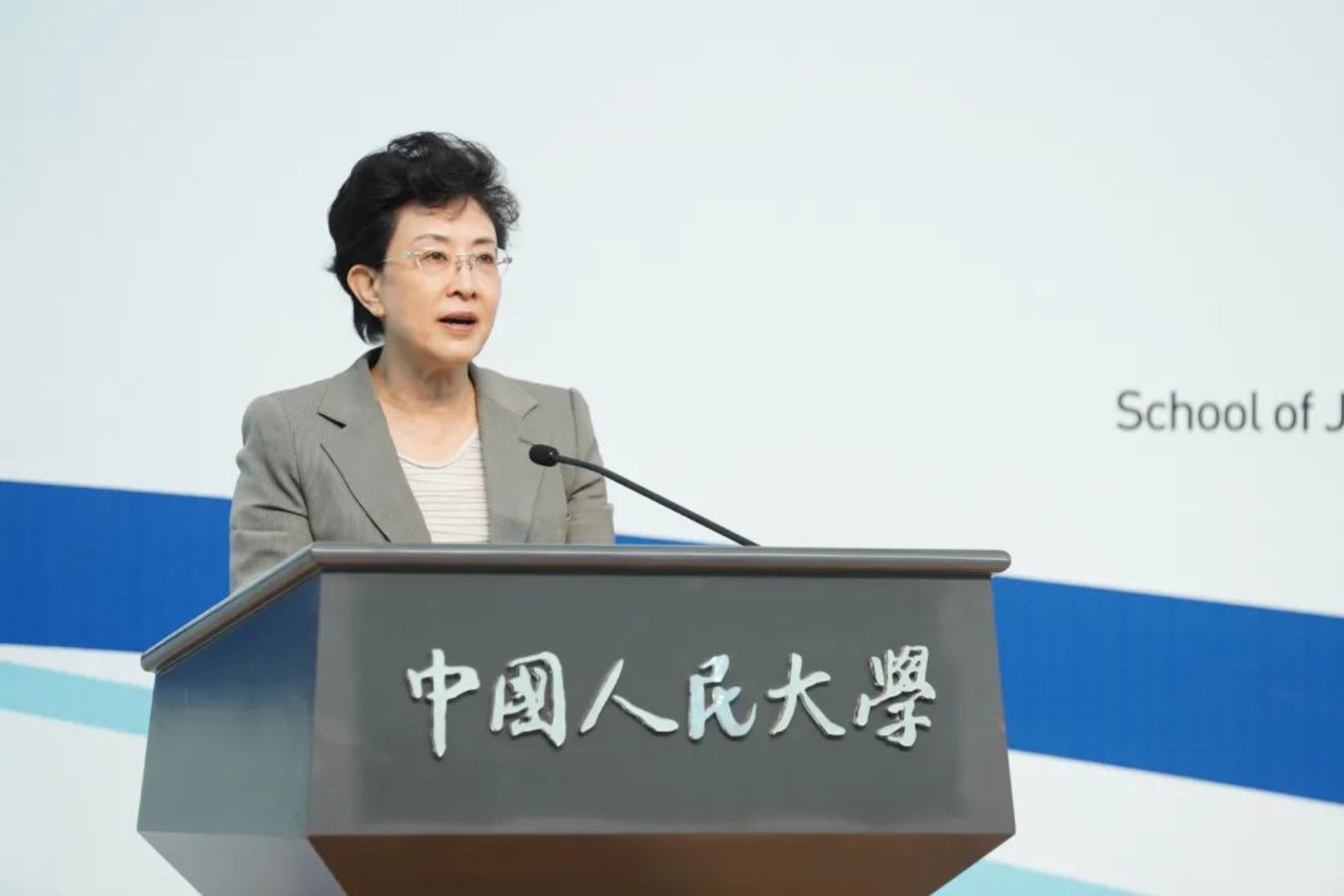
Guo Weimin, chairman of CCPR, on behalf of The China Public Relations Association, extended warm congratulations on the opening of the forum, sincere welcome to friends from all over the world who attended the forum both online and offline, and sincere thanks to people from all walks of life who participated in the preparation of the forum, especially the School of Journalism and Communication and School of Public Administration of Renmin University of China.
He briefly reviewed the history of the development of Chinese government disaster prevention since the reform and opening up. The history shows that China's disaster prevention work has transformed from passive to active, from weak to constantly improving. It fully embodies the people-oriented governing idea of the government, demonstrates the leadership of the CPC and the superiority of the socialist system with Chinese characteristics, demonstrates China's firm determination and practice in building a community with a shared future for mankind.
In addition, Guo Weimin made three suggestions based on his working experience: first, put prevention in the first place and enhance the public's awareness of disaster prevention; second, effectively improve comprehensive disaster resilience and lay a solid foundation for safe development; third, actively carry out international cooperation on disaster reduction and build a good national image.
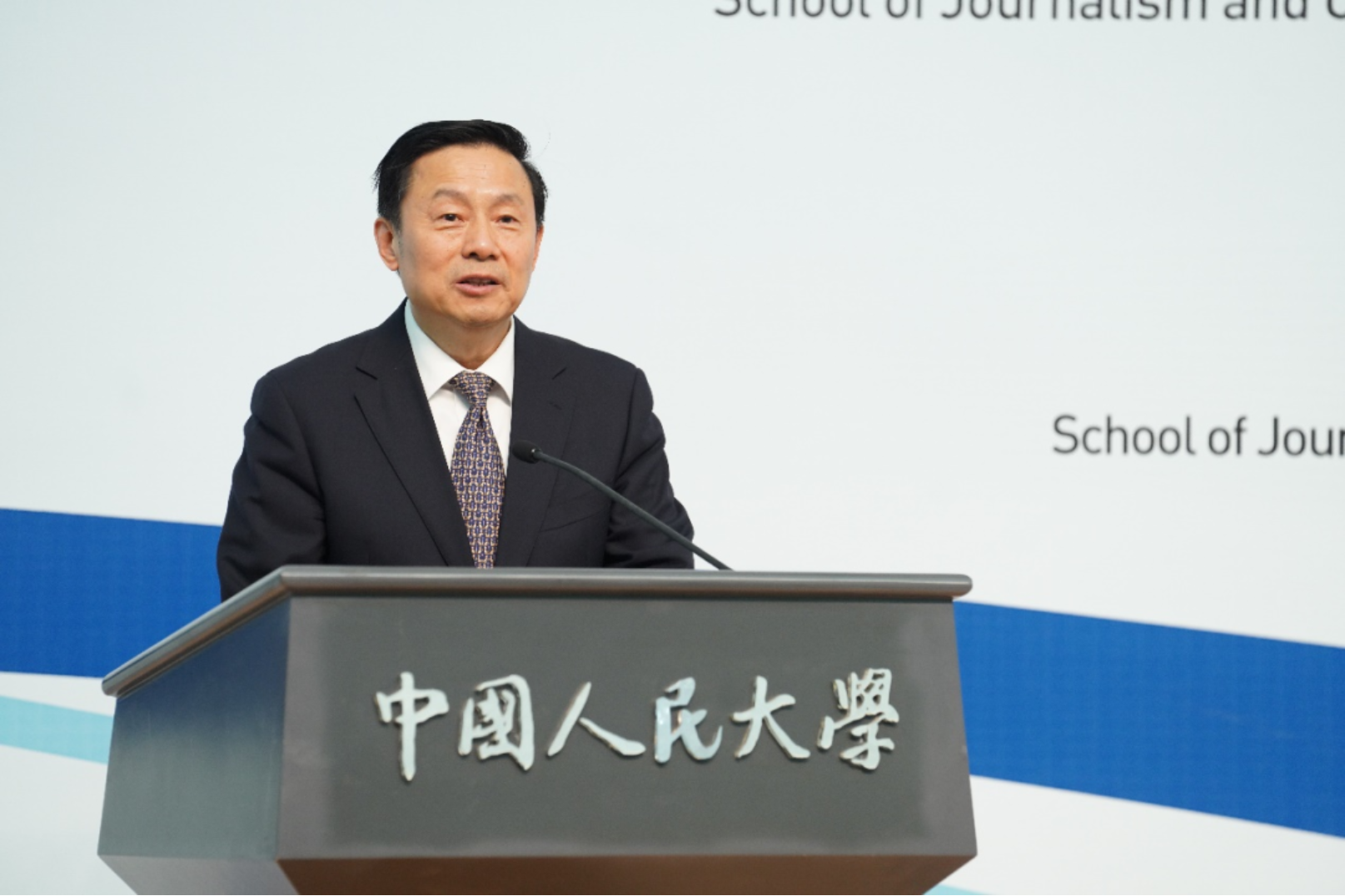
Secretary-general Zheng Guoguang expressed his great pleasure to hold and participate in this forum on the eve of the National Disaster Prevention and Mitigation Day, to exchange China's experience and practices in disaster prevention and reduction and learn from the advanced experience. Compared with other countries, natural disasters in China are characterized by various types, wide distribution, high frequency of occurrence and causing heavy losses.
As a large developing country with a population of nearly 1.4 billion, China has accumulated the following experience in disaster prevention: first, adhere to the leadership of the CPC and giving play to the superiority of the socialist system; second, adhere to people-centered, people-first, life-first principle; third, give priority to prevention and combine prevention with resistance to form a smooth and efficient system and mechanism for disaster prevention; fourth, improve social governance, strengthen the foundation at the community level, and strengthen the people's defense line against disaster; fifth, strengthen international exchanges to build a community with a shared future for mankind in natural disaster prevention and control.
He further put forward suggestions on promoting the establishment of global mechanisms for disaster prevention, making full use of existing cooperation mechanisms and channels of international and regional organizations, and further deepening cooperation in regional multilateral mechanisms.
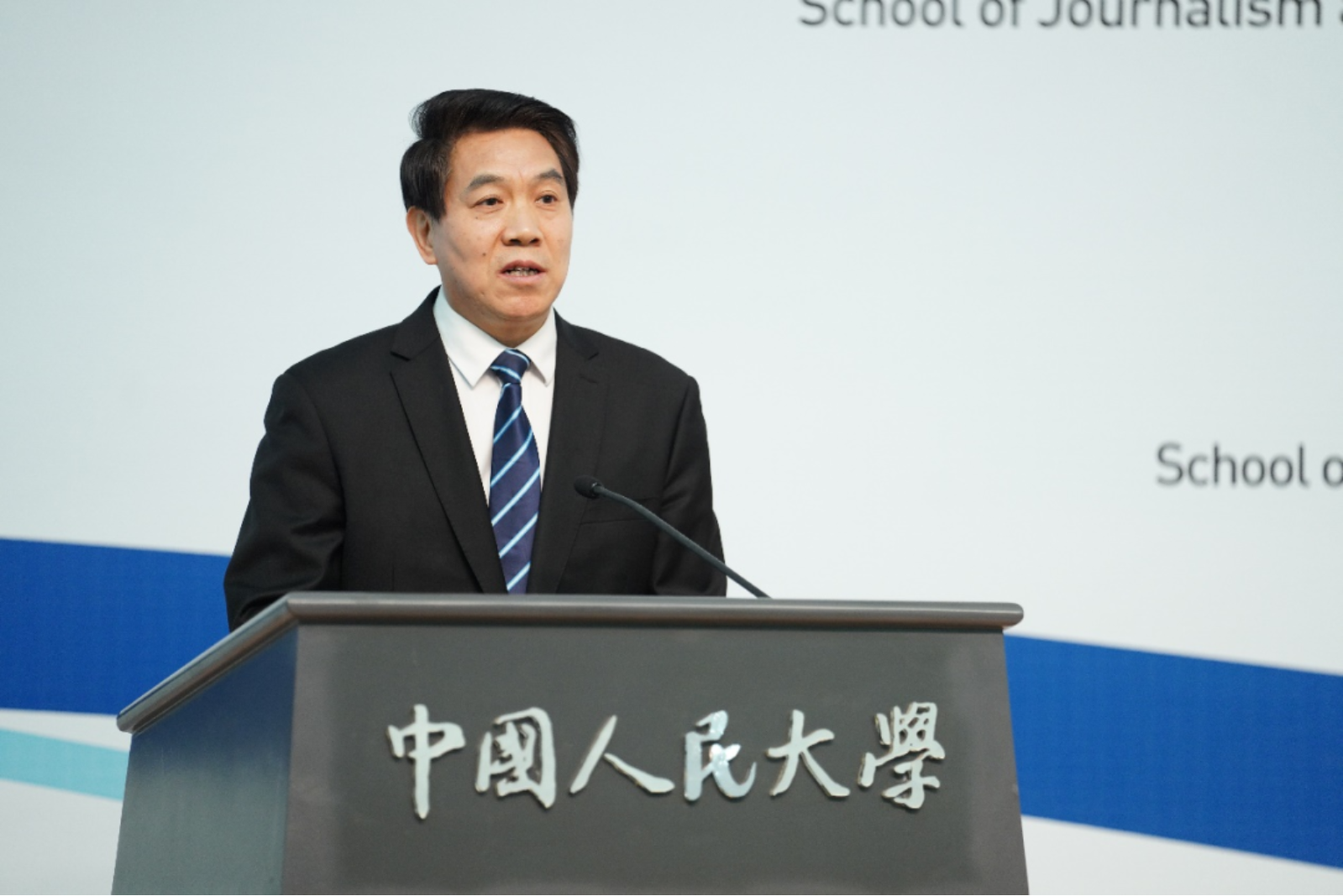
Prof. Pamela Shoemaker delivered a keynote speech on the theme of "Us Response to Rumors in Disaster Prevention and Mitigation". She put forward suggestions on information release in disasters: first, timely release data and keep information open; second, after the disaster, the media need to obtain accurate information and carry out effective dissemination; third, attach importance to the opinions and suggestions of industry experts and make relevant decision making of disaster prevention and mitigation; fourth, after the disaster, the government, the public, experts and scholars need to communicate with each other to eliminate information uncertainty. Finally, governments need to adjust their policies in response to real-time changes in disaster information to achieve better results in disaster prevention and mitigation.
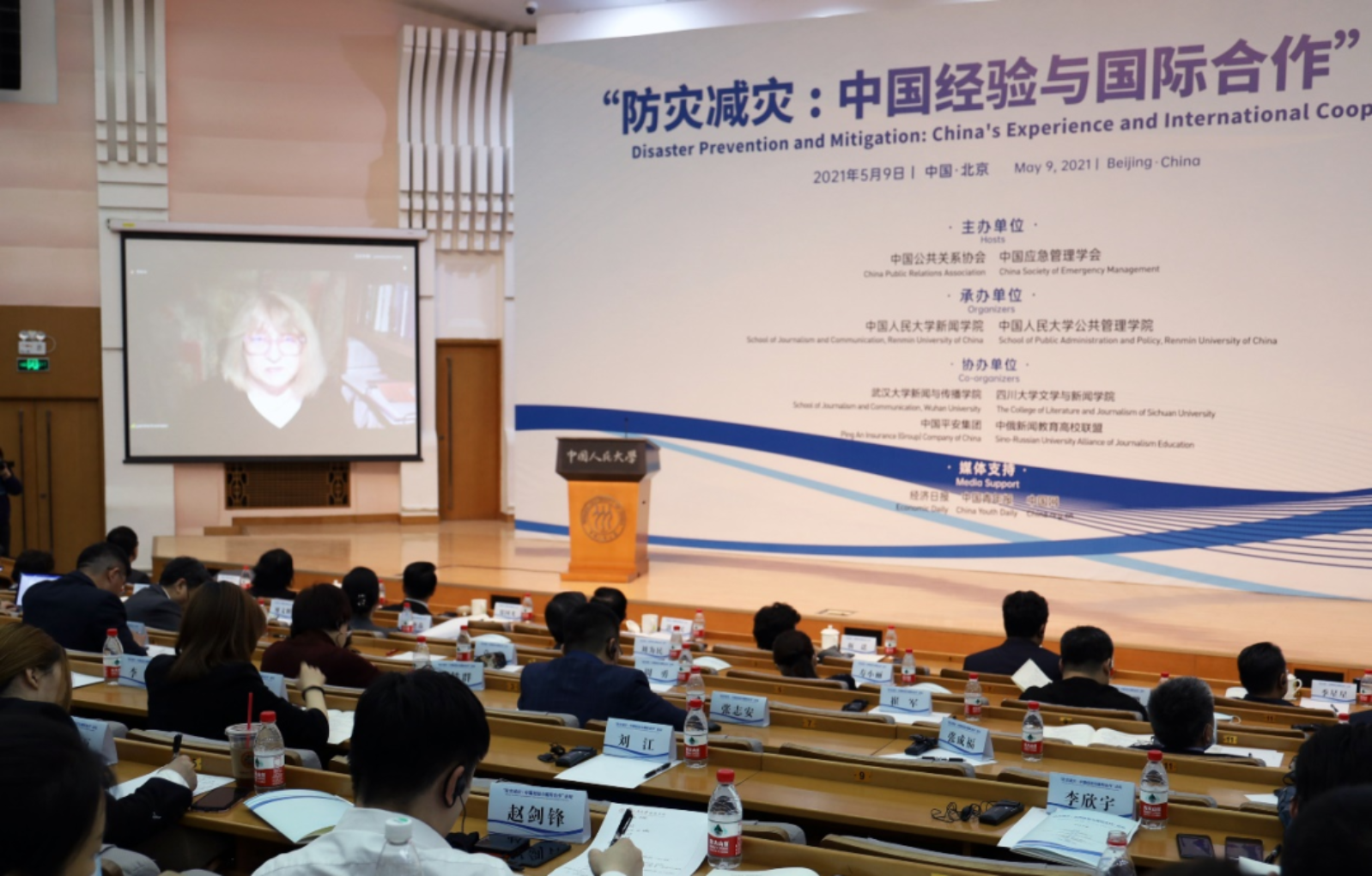
(Online address by Professor Pamela Shoemaker)
Vice President Hu Baijing expressed her sincere welcome to the guests attending the forum. He said disaster prevention and crisis response are common topics around the world. The history of human civilization is not only a history of pursuing progress and creating prosperity, but also a history of coping with various disasters and crises.

After the keynote speech, Professor Zhou Yong, Executive Dean of School of Journalism and Communication, Renmin University of China, hosted the "Five-Into" live.
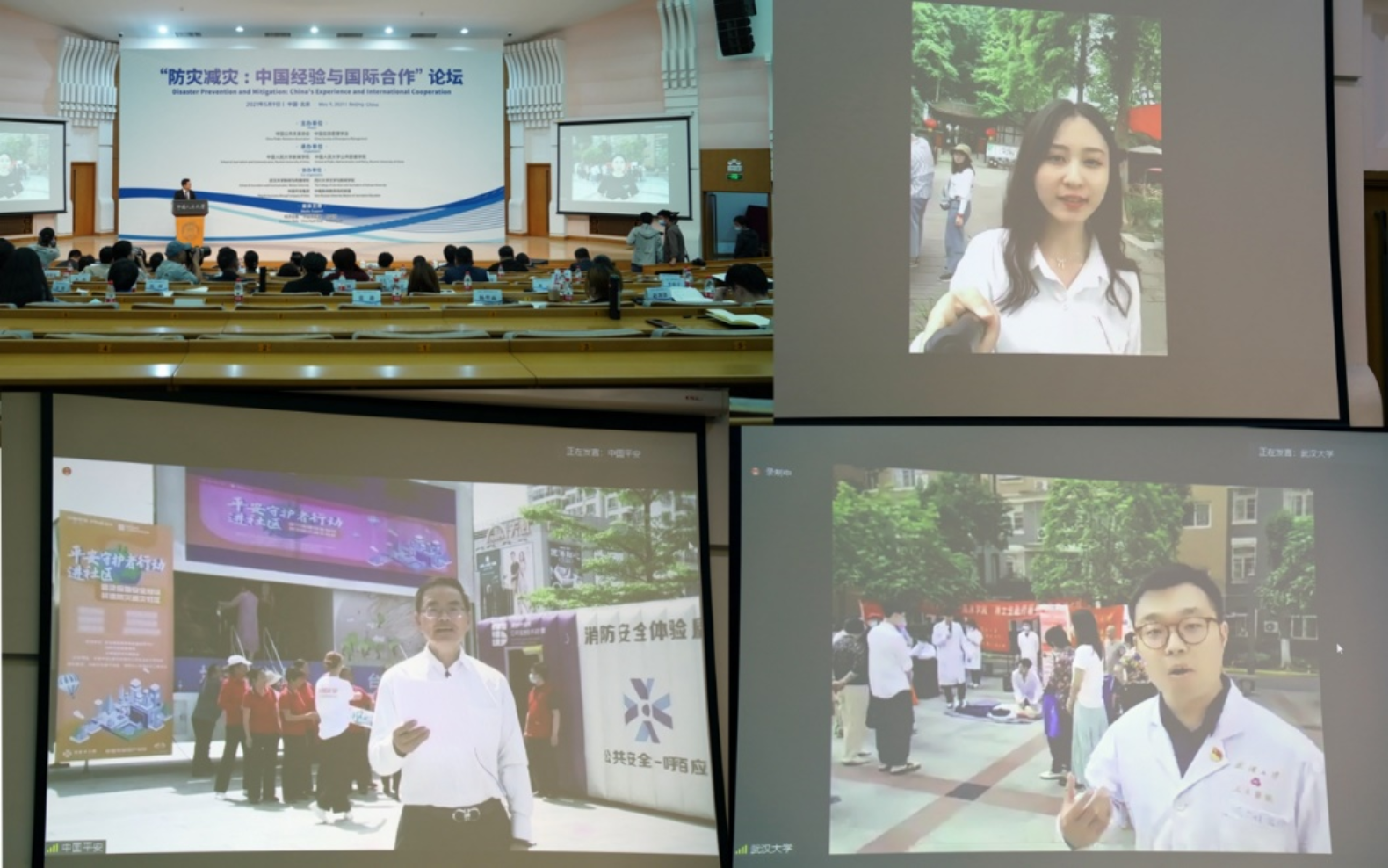
In order to deeply implement the important discussion spirit of General Secretary Xi Jinping on emergency management, and solidly promote the "Five-Into" concept of safety publicity into enterprises, into rural areas, into communities, into schools, into families, the forum set up a live link.
Co-organizers, the Postgraduate Service Group of Sichuan University went to Zhanqi village in Chengdu area village; teachers and students from School of Journalism and Communication, Wuhan University went in Wuhan east lake new town community; Ping an Insurance company of China went to Shenzhen grassroots community, to carry out disaster prevention education, VR experience of disaster prevention and reduction and series of activities such as free clinics, implementing the people-centered development principle by General Secretary Xi .
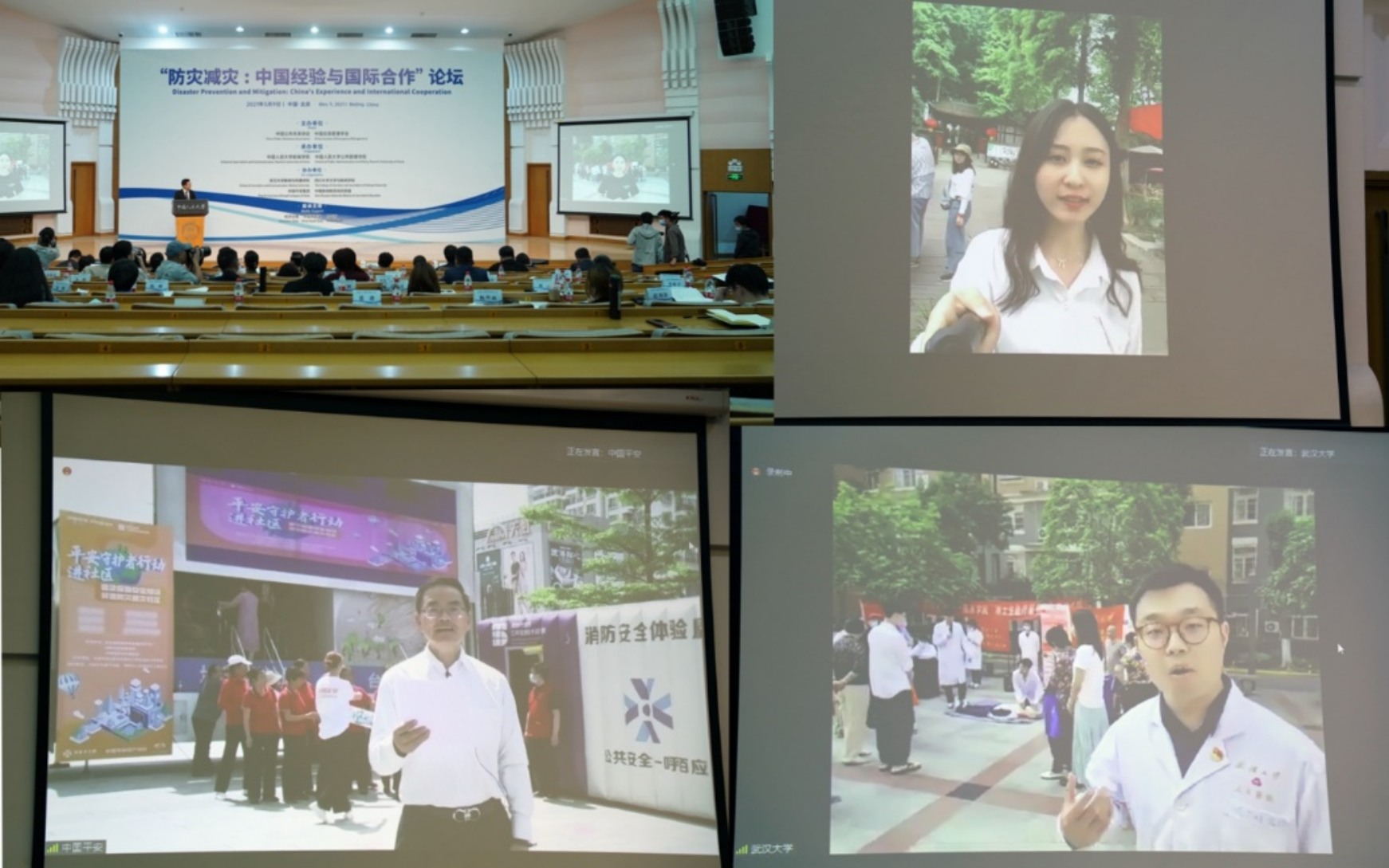
Sub forums
Three sub-forums was held at the same time after the main forum, including "Crisis response and international cooperation forum" "Policy innovation and public governance forum" and "Risk communication and public opinion consensus forum". Forums invited domestic and foreign experts and scholars to share ideas and promote international cooperation in disaster reduction.
"Crisis response and international cooperation forum" was hosted by Professor Zhou Yong. Experts delivered speeches around the international leadership of crisis-coping cooperation, using deliberative democracy to make policy recommendations, building a resilient country, innovating strategies of politics and public relations under disaster, etc.
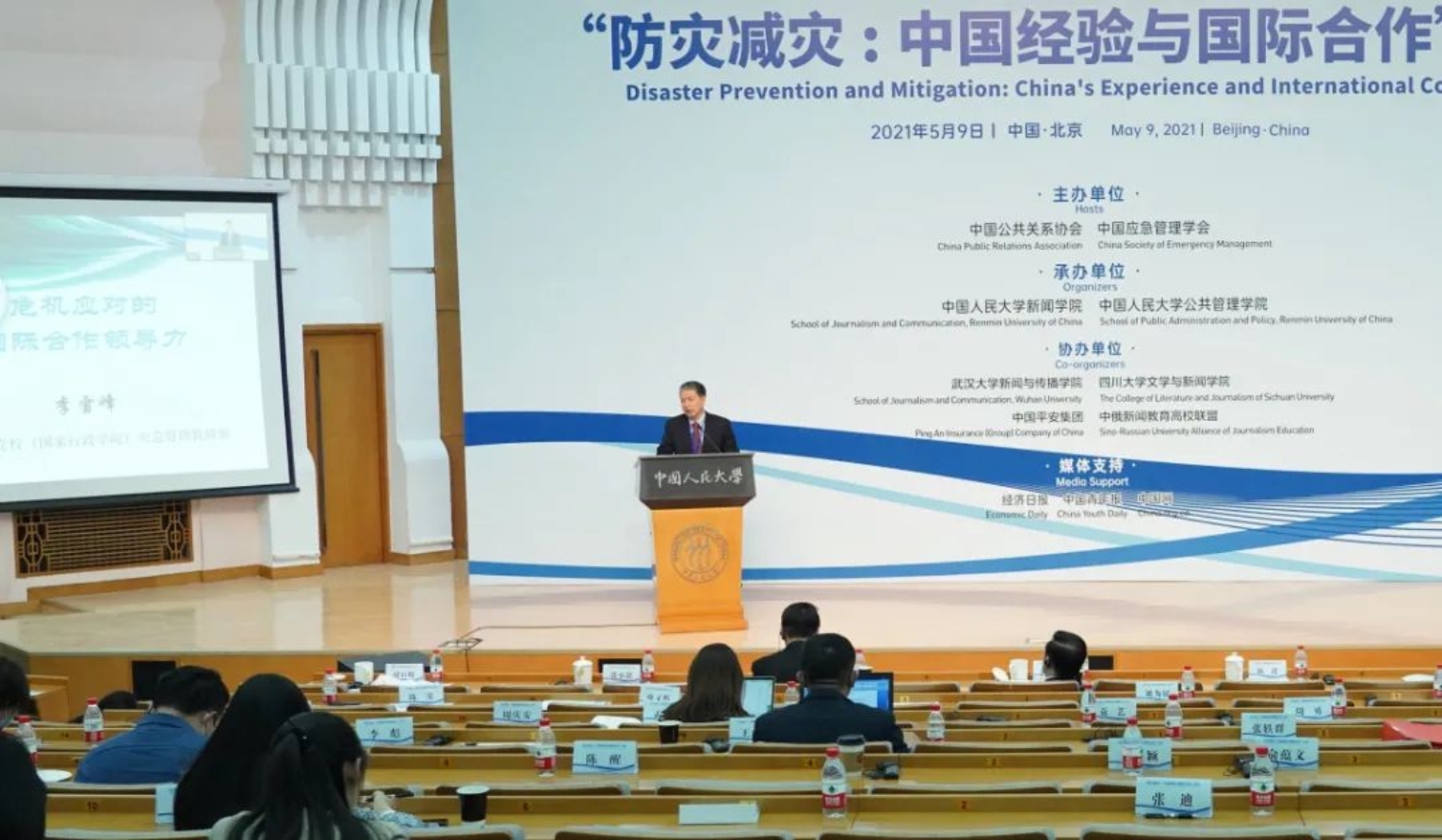
"Policy innovation and public governance forum" was held at the same time. Cui Jun, Deputy Dean of School of Public Administration, Renmin University of China chaired the meeting. Experts delivered speeches around the national integrated natural disaster risk census, Singapore’ s experience on controlling the COVID outbreak, the role of journalism in the global pandemic, etc.
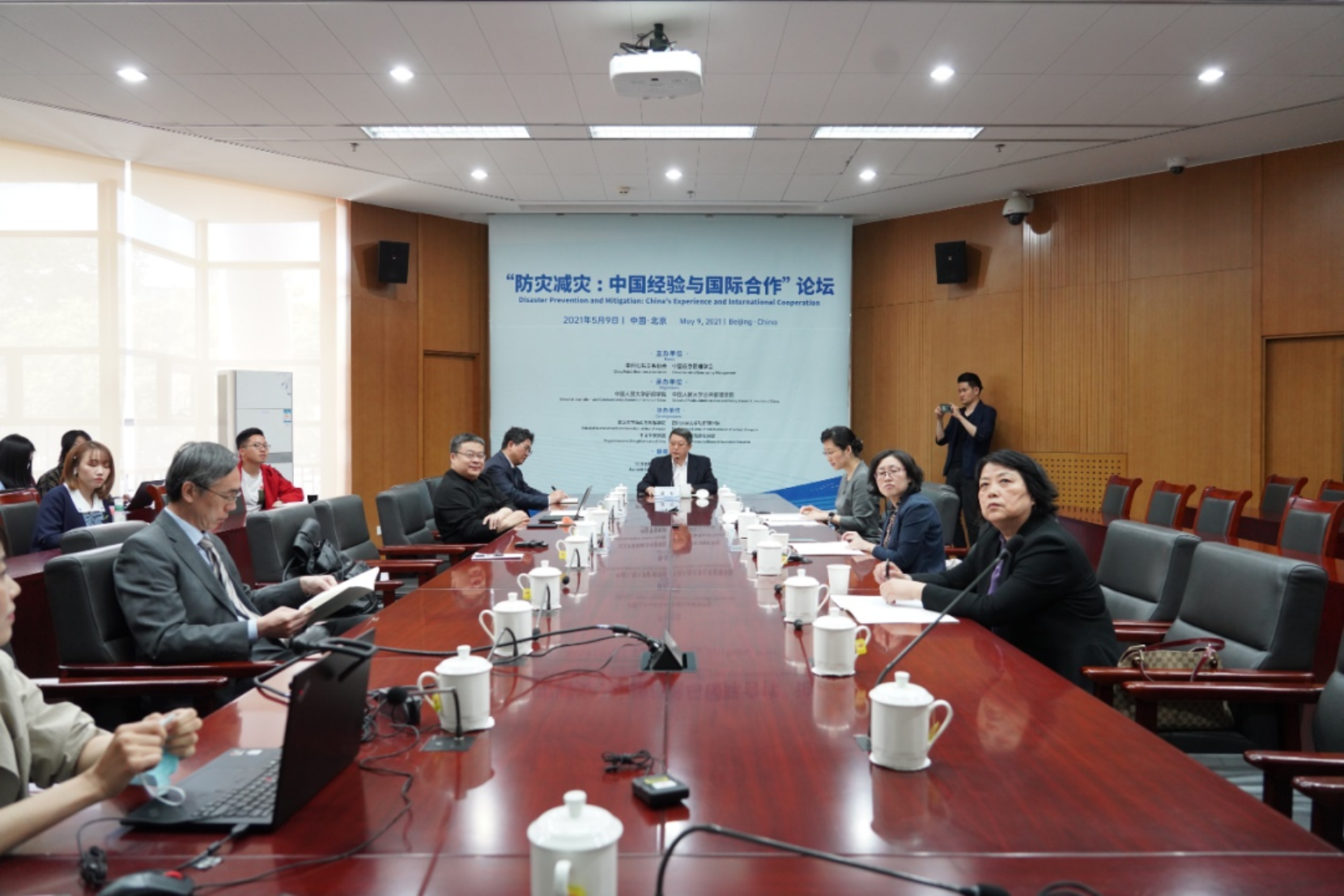
"Risk communication and public opinion consensus forum" was hosted by Professor Zhang Huifeng, Party Secretary of School of Journalism, Renmin University of China. Experts delivered speeches around risk society and risk communication, emergency management and risk communication adapter and system optimization, the Internet platform and crisis management modernization, etc.

Author:Li Yuhao
Photo: Han Chunliu team, Gao Yang, Bai Yang
Guo Jinwen, Yang Yuran, Wang Jiuling
Translator: Liao Jing
Editor: Wang Siwei



